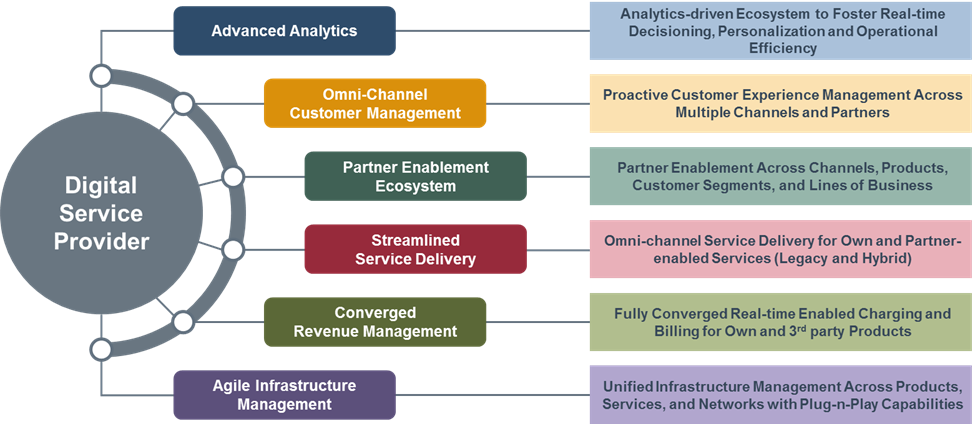6 Essential Requirements for a Digital Service Provider
DSPs know their customers, know their networks and foster creative partnerships to deliver the best services possible.
The communications industry has mixed definitions of a digital service provider, with many service providers already claiming to have taken on a digital transformation. But regardless of how they spin it, we've noticed a trend: Of the many factors that go into digital transformation, there are six common and essential capabilities that service providers must have to successfully take on their competitors and delight their customers.

1. Advanced Analytics
The amount of data moving across networks is staggering. As such, digital service providers need capabilities that enable them to capture and make sense of data and apply those findings to customer engagements. Assessing the effectiveness of existing offerings, supporting targeted promotions based on contextual information, providing cross-service offerings according to customer preferences—these all rely on a digital service provider's ability to analyze data quickly and efficiently.
2. Omnichannel Customer Management
Consistency and being able to deliver the same experience across every channel is crucial for digital service providers. If a customer begins searching for a product on his or her mobile device only to make the final purchase in a physical store, the transition should be simple and easy for the consumer, while giving the retailer necessary data on where its customers are coming from. Guaranteeing these smooth interactions every time a customer engages with a brand will be important for service providers to solidify their digital footprint.
3. Partner-Enabled Ecosystem
The digital environment is all about openness and allowing different brands to work with one another. Becoming a digital service provider means lowering some of the barriers that traditionally prevented some companies, even competitors, from working with one another. By enabling a wide ecosystem comprised of a range of partners, service providers can open new lines of business and expand existing customer relationships.
4. Streamlined Service Delivery
Similar to the previous point, service providers must be able to deliver their own services, or those offered by their partners, faster than they do today. A digital service provider needs to support the delivery of both legacy and hybrid services from their own or their partners’ portfolios across any device.
5. Converged Revenue Management
Digital service providers need a revenue management solution with a centralized product catalog that is integrated with a real-time rating and charging infrastructure and can support any type of service, even those from partners. Revenue management systems also need to support dynamic, policy-based discounts and manage offerings through the use of analytics. This allows consumers to see the same product, pricing and service terms no matter how they choose to shop.
6. Agile Infrastructure Management
Designing and implementing a unified approach to managing the network infrastructure is critical for digital service providers as they automate processes around the capturing, management and fulfillment of orders and services. Digital service providers should be able to use a plug-and-play approach when building their network, allowing them to expand their networks more quickly and operate them more efficiently.
Embracing these capabilities will put service providers in the right position to enable and maintain their transformation into a digital service provider.
For more information on what it takes to become a digital service provider, be sure to check out an article by Paul Hughes, Director of Strategy at Netcracker, in VanillaPlus.